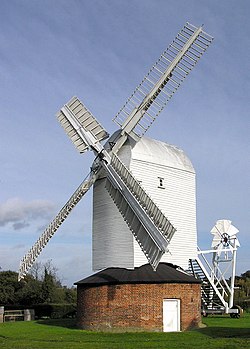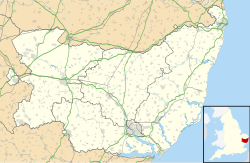This article needs additional citations for verification .(January 2009) |
| Stanton | |
|---|---|
 | |
Location within Suffolk | |
| Population | 2,507 (2011 census) [1] |
| OS grid reference | TL967734 |
| District | |
| Shire county | |
| Region | |
| Country | England |
| Sovereign state | United Kingdom |
| Post town | BURY ST. EDMUNDS |
| Postcode district | IP31 |
| Dialling code | 01359 |
| Police | Suffolk |
| Fire | Suffolk |
| Ambulance | East of England |
Stanton is a village and civil parish in the West Suffolk district of Suffolk in eastern England, about nine miles north-east of Bury St Edmunds, on the A143 road to Diss. Close to the village lies the former WW II airfield RAF Shepherds Grove, where American forces were based. One of the main landmarks in the village is the fine restored windmill at Upthorpe Farm, to the east of the village. The name " Stanton" means 'a homestead on stony ground'.
